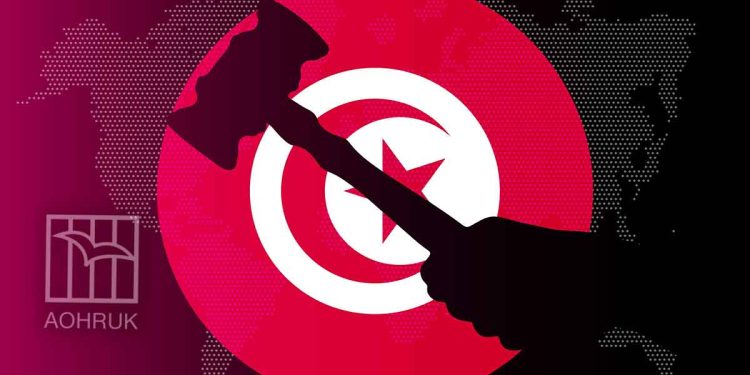In what has been described as an “unprecedented” judicial development, the Primary Court in the Tunisian capital issued initial prison sentences totalling 892 years against 40 individuals on Saturday, in what is known as the “Conspiracy Against State Security” case. The accused include political figures, lawyers, and civil society activists.
At a press conference held by the defence team at the Tunis Bar Association, lawyer Samir Dilou stated that “the verdicts were based on the testimony of an anonymous individual who has yet to be heard by the judiciary,” stressing that such practices “undermine the principles of fair trial and damage Tunisia’s international reputation.”
Sentences ranged between four and 66 years, with the harshest imposed on businessman Kamel El Latif (66 years), former Democratic Forum leader Khayam Turki (48 years), and senior Ennahda official Noureddine Bhiri (43 years). Others convicted include political figures Ridha Belhaj, Issam Chebbi, and Ghazi Chaouachi, all aligned with the opposition coalition, the National Salvation Front.
The case dates back to February 2023, when authorities launched a sweeping arrest campaign targeting opposition figures and activists on charges such as “undermining public order,” “collusion with foreign entities,” and “incitement to insurrection.” The detentions were marked by a lack of judicial safeguards, amid rising concerns over politically motivated prosecutions in Tunisia.
These developments have raised alarms over a return to pre-revolutionary authoritarian practices, particularly following the exceptional measures enacted by President Kais Saied in July 2021, which included the suspension and later dissolution of parliament, and the adoption of a new constitution granting expansive presidential powers. Many political forces have since labelled the shift as a “constitutional coup.”
The verdicts in the “conspiracy” case represent a grave setback for human rights in Tunisia, especially in the absence of a constitutional court and adequate legal safeguards. The situation continues to fuel fears of the country’s slide into authoritarianism, over a decade after its revolution for freedom and dignity.


























